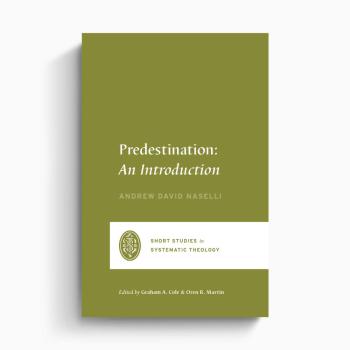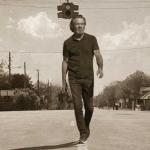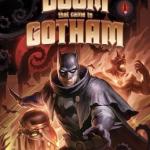“You read a lot,” a friend tells me. She follows me on Facebook, where my profile is linked to my GoodReads accounts. Every time I log a new book at GoodReads—and I often update books as “want to read” or, after completion, “read”—the update posts to my Facebook account.My GoodReads profile tells me I read 44 books in 2013.
Yet the stack of books on my end table seems only to grow. If I (finally) knock out a hardback or paperback, the effect on that stack of books is hard to notice: The stack is taller than when I began the just-completed tome.
Here’s my secret to the accumulation of completed books in 2013: I “read” them with my ears. I’ve become an audiobook junkie.
Sure, I’ve listened to audiobooks for years, and have touted them to friends. But 2013 was a breakout year. In January I decided that I’d focus my commuting time in the year ahead on audiobooks rather than on my music collection. The next 12 months were fruitful. I knocked out most of my 44 books during the calendar year during my daily commute, which ranges from 90 minutes to 120 minutes per day.
Here are five audiobooks that made the most lasting impression in the past year.
The Interestings, by Meg Wolitzer
The type of acclaimed novel that often strikes me as spiritually empty, The Interestings managed to keep things, well, interesting, even as it depicted the lives of several characters for whom spiritual pursuits never played a role. We listen in as school-age friends form lasting bonds, then track the students as they enter the professional world, get married, struggle with their identities and manage to (mostly) stay in touch through it all.
Cooked, by Michael Pollan
One of the few authors who can read his own work well, Pollan narrates his fourfold story of how we prepare food, diving the book into fire, water, air and fermentation. His musings on effective barbecue made me want to build a fire pit in my backyard and spend hours learning how to become a pit master—a probably unreasonable goal, but not entirely out of reach for a guy in his 40s.
The Woman Upstairs, by Claire Messud
A story of bitterness and resentment from the point of view of “the woman upstairs”—the one who lives alone and wants to be left alone. Maybe you know someone like the protagonist. Messud helps us better understand the inner life of a woman who has settled into a solitary life, but the author doesn’t force us to sympathize with her. Just when you think you’ve settled in your conclusions about the title character, a nasty twist late in the narrative makes you rethink everything you’ve read up to that point.
The Little Way of Ruthie Leming, by Rod Dreher
Dreher returns to the small town in Louisiana he was so desperate to escape as a young man. He does escape to pursue life as a journalist in Philadelphia and Washington, D.C., among other metro areas. But his sister’s cancer takes him back to the rural community that nurtured him as a child, and which supports his sister, Ruthie, through her illness. Seeing the way the community rallies around Ruthie, Dreher discovers something he’s been missing in city life and moves his family back to Louisiana. But there are more discoveries to be made once he’s returned. Dreher’s Catholic faith is often explicit in the tale, which is marked by numerous interventions and mysterious/angelic appearances that may make evangelicals scoff. (I know I did.) But Dreher’s story of sibling and community love is a clear-eyed take on the pros and cons of rural life.
Every Love Story Is a Ghost Story, by D.T. Max
The troubled life of author David Foster Wallace, supported largely through the author’s correspondence with Jonathan Franzen and Don DeLillo. Max’s telling doesn’t spend much time on Wallace’s interest in Christianity (Wallace was fascinated by the writings of the Apostle Paul), but that may be just as well. It’s frustratingly clear from what is included that Wallace was troubled and couldn’t overcome his emotional and psychological problems. Max’s telling leaves us with a sense of what might have been, and how much was lost when Wallace took his own life.












